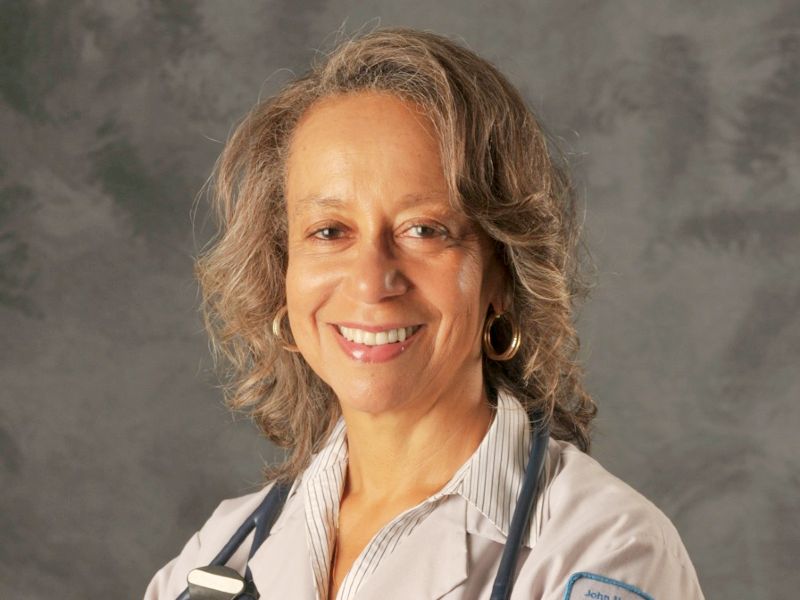
Tell us about your background prior to becoming a physician. What or who inspired you to pursue a career in medicine?
I was born and raised in Chicago, and I am a product of the public school system. I went to three different colleges and graduated from Roosevelt University in downtown Chicago. I went to college as a biology major. I wasn’t sure that I wanted to go into medicine until my junior year. I went to the University of Illinois to obtain my medical school education and received my residency training at Cook County Hospital, now called John H. Stroger, Jr. Hospital of Cook County, in internal medicine.
After my year as chief resident, I left Cook County hospital and worked at various places, including an HMO in Oak Park. I worked as an attending at Northwestern Hospital and its affiliated Lakeside VA hospital. I returned to the Cook County system after realizing that’s where I really desired to be. The mission of County and the patient population made that decision easy for me. I was a primary care physician at the Woodlawn Clinic, one of the county’s neighborhood clinics on the South sSide of Chicago, for over 15 years. I later transitioned to becoming hospitalist, and I eventually became the clerkship director for the M3 core clerkship in the Department of Internal Medicine at Stroger.
I have been on the faculty at RUSH for over 20 years. As I became more involved with RUSH medical students, I became a member of Committee on Student Evaluation and Promotion (COSEP) and Committee on Admissions (COA), both of which I am currently involved with. I retired from Stroger Hospital in 2014. While there, I was fortunate to have received several teaching awards from the medical students who rotated through the hospital. I have never regretted that decision to become a physician.
What advice would you give someone who is considering medicine?
The career of medicine is very different now from when I started my journey. There are many more opportunities available, especially for women. The number and types of specialties are much more numerous now. The opportunities for research, public health involvement, medical administration and clinical care are much more varied for both generalists and specialists now.
It is important to not have tunnel vision, but be open to opportunities that you may not have considered. It’s not just finding a specialty that you like but also about finding the career in that specialty that you take pleasure in doing. Yes, student debt can be overwhelming. Hhowever, selecting a specialty or career that you enjoy will make you a much better and happier physician than just picking one that will pay you well.
What are some of the community initiatives you have been involved or currently working on at RUSH?
I was involved with the Student National Medical Association (SNMA) and Latino Medical student Association (LSMA) chapters at RUSH before I retired. I am currently involved with the Student for National Health Program (SNaHP) chapter at RUSH, which is part of an organization, Physicians for a National Program (PNHP), that advocates for single payer/Medicare for All. I am currently the president-elect of this national organization of over 20,000 members.
Please share a fun fact about yourself!
I have always been athletic and have run over 10 marathons and completed many triathlons. I love to ride my bike and still swim competitively. I am married with two daughters and two grandsons neither of whom has gone into medicine!
